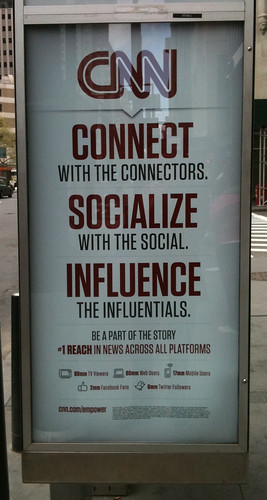Mobile and the mainstream

 We're at an interesting tipping point between mobile technology, email and video partly brought about by odd business decisions.
We're at an interesting tipping point between mobile technology, email and video partly brought about by odd business decisions.
I've been using Flip video cameras to record discovery in interviews all last week and will be using them again this week with the participants permission; as I've previously discussed here they are a useful way of taking notes. There's been speculation as to why Cisco shuttered the Flip business rather than selling it. As I wrote back in December 2009
Pure Digital Technologies was snapped up by Cisco in March 2009: they originally launched their reusable video camera in May 2006 after their disposable video cameras, marketed through the CVS drugstore chain, proved very popular. From those beginnings they’ve rapidly transformed the camcorder market, selling over 2.5 million units and running a close second to Sony in terms of volume.
The Wikipedia Flip obituary suggests competition from phone cameras was the killer: my suspicion is we will revert back to cheap no brand Flip style cameras at drugstores imported from Asia. Go Pro, who have just announced a 3D model to augment their action oriented wearable sports cameras, are an obvious winner after Cisco's branding efforts and withdrawal.
I'll presumably be using my old Flip cameras or whatever next iteration of dedicated lightweight HD cameras emerges in the future, but one thing's for sure - a phone camera recording a formal business meeting sends very different signals to those being captured than a Flip.
Most people need reassurance that any footage shot won't end up on publicly visible YouTube or other online video hosting service - it's a slightly illogical concern, but internet connected devices such as smart phones are still somehow more threatening than a single use video camera, although it's trivial to upload video to the net via a computer from those devices.
Meanwhile last week Blackberry smart phone company RIM's stock price crashed last week after saying that sales of its smartphones will be in the lower range of previously guided forecasts of 13.5-14.5 million.
As John Dvorak wrote on Marketwatch
The minute Apple Inc.’s iPhone appeared and rocketed to glory, everyone was wondering what RIM would do for its third act. So far, the company has been in the tank with a couple of real dogs.
The first howler was RIM’s Storm, which I personally tried and found to be impossible to use and also annoying. Now we see the PlayBook, which will turn out to be a disaster.
For a company that got its reputation and hung its future on email, exactly why can’t the RIM PlayBook retrieve any? If you hook a phone to it, you can get your messages, yes. But that’s just ridiculous. Why can’t the thing retrieve email like every other tablet in the world just by itself?
The Blackberry of course surged to fame as the first mass use business smartphone, enabling email access, the lingua franca of the dot com boom, in 1999. Things have moved on significantly since those days, but the lowest common denominator of one-to-one or one-to-few email communication continues to be very widely provisioned in the enterprise and sustains mobile 'crackberry' use via data routed through Research In Motion's strongly encrypted secure servers.
Email is terribly abused as a communication medium in most companies, and RIM's bizarre product decisions coupled with the rise of the less enterprise class but more innovative smart phone and tablet alternatives could provide the momentum to shift some collaborative activities into one to many web interfaces.
As the CNN advertisement aimed at enticing advertisers I photographed on the streets of Manhattan this week illustrates, these newer mediums are now very mainstream.
CNN's claimed 81mm TV Viewers, 80mm Web Users, 17mm Mobile Users, 2mm Facebook Fans and 6mm Twitter Followers are part of their product, crowd sourcing content and interaction from their fans, followers and users. If you're not paying for the product you are the product, but the lines are further blurred if you're paying for cable, internet access and your mobile plan.
The job you do to afford all those services requires a very different type of disciplined group collaboration using similar mediums, but hopefully with clear understanding that you won't be collaborating with CNN about the data you're exposed to online at work.
RIM's Playbook tablet is clearly heading in the wrong direction, camera phones in meetings are going to require very tight governance before they're allowed and CNN's bizarre line ' in that ad shows we continue to have a bumpy road ahead as we reach clarity about how best to use these various mediums effectively.
Teasing out all these strands to calibrate and tune businesses for this new era is a huge competitive performance differentiator but all the moving parts and online noise require more discipline than some seem to to be aware of, which can be an expensive mistake.